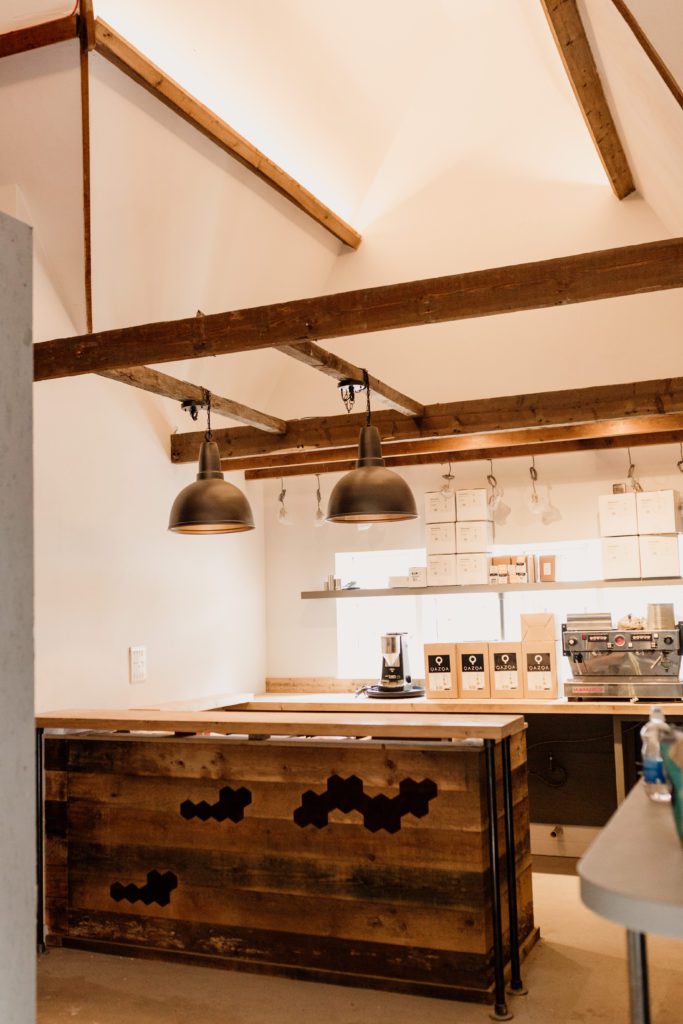Independent, city centre restaurant KindleCardiff has been shortlisted for the Sustainability Award in the National Restaurant Awards, the largest annual gathering of top chefs and restaurateurs in the UK.
The Sustainable Restaurant Association helped to put together the shortlist, which recognises the restaurants which have, in the past 12 months, successfully implemented new initiatives to reduce their impact on the environment or increase their positive impact on the people who work for them or live in their community.
Kindle is one of only four restaurants shortlisted in the category, and the only one in Wales.
This recognition follows on from Kindle scooping the first ever Sustainability Award at this year’s Cardiff Life Awards, where a panel of independent judges described the restaurant as showcasing “a pure passion for seasonal, ingredient-led cooking and a low impact sustainable design.”

Kindle was created by Phil and Deb Lewis, the entrepreneurial couple behind Dusty’s; an award-winning micro-chain of Neapolitan pizzerias in South Wales, and Nook; a cosy yet simply-styled neighbourhood bistro, also in Cardiff.
What are the National Restaurant Awards?
Launched in 2007, the National Restaurant Awards awards celebrate the brilliance and vibrancy of the UK’s eating out scene – and reward the very best chefs, front of house staff and restaurants the country has to offer. On the night of the awards, a list of the 100 best restaurants in the UK is revealed, as voted for by a select academy of chefs, restaurateurs and food writers.
In 2019, more than 90 of the top 100 restaurants were represented at the event, rubbing shoulders with household names like Tom Kerridge, Grace Dent and Raymond Blanc.
What’s on the menu at Kindle?
Kindle combines ‘fire food’ with natural wines in a vibrant, informal and unique city centre setting. The restaurant team works closely with local farmers, gamekeepers and gardeners, to use ethical produce with an emphasis on provenance & sustainability.
Head chef Tom Powell, formerly of the Michelin-starred Walnut Tree in Abergavenny, leads the kitchen team at Kindle, creating seasonal menus which also make the most of the on-site kitchen garden and greenhouse.

Bringing together ground-breaking design and a passion for seasonal ingredient-led cooking, Kindle is the culmination of founders’ Phill & Deb’s long-held dream to open a truly sustainable restaurant in their home city, operating on circular economy principles.
To bring this to life, the couple worked closely with Object Space Place (OSP), a pioneering interior architecture and design company with a focus on hospitality.
As a result, Kindle’s entire design made the most of reusing and repurposing almost every element of the original building, and a high proportion of the materials are reclaimed, including all internal doors, and the flagstones, railways sleepers and scaffold boards used to create the garden and planting beds.

In addition:
- All timber is either reclaimed or FSC (Forest Stewardship Council) with a Chain of Custody Certificate to prove its origin.
- Materials with high recycled content have been used, such as wall tiles which are made from 90% recycled glass.
- Bricks removed from the external walls to create new door openings have been reused in the garden.
- Energy performance has been improved by adding new sheep wool insulation to the existing walls and roof. The sheep wool also has much lower embodied carbon than oil-based insulation.
- New taps, showers and low flush toilets are selected from the Water Technology List to ensure efficiency and reduce water use.
- Energy efficient LED lighting is controlled by movement and daylight sensors to ensure it is only on when needed.
- The landscaped garden and new planting beds have been improved with peat-free sustainable compost.
- Water based paints and wood stains have been chosen to reduce VOC’s (Volatile Organic Compounds), and a VOC monitor will be installed to make sure levels stay low.
- Where available, products with an EPD (Environmental Product Declaration) have been chosen. The EPD helps meaningfully compare the environmental performance of one product to another.
The design also lends itself to an exclusively outdoor dining experience, with only the bar area, kitchen and toilets based within the building.
But with future extensions and developments in mind, parts of the project have been ‘designed for disassembly’ meaning they can be easily taken apart and reused.
The second phase of the build will take place in a few years, and will involve a glass-fronted extension, reusing every element of the current build in the final iteration.
